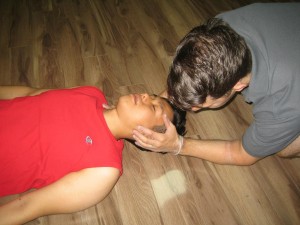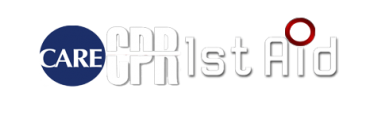
Learn to stay safe, be prepared for emergencies, and learn to manage life-threatening emergencies including heart attacks, hypoglycemia, cardiac arrest, and obstructed airways. The largest and most popular provider of Nova Scotia-approved first aid and CPR training is Halifax First Aid. Registration for courses is available by website here, or through e-mails or telephone using the contact information posted below. A variety of workplace-approved training programs are available as well as online safety training such as fire safety, WHMIS, and TDG. Food handling certification classes are also available. Get the best training with experienced instructors and great customer service by enrolling with this provider. Certification provided through this workplace and academic approved provider is valid for 3 years throughout Canada.
Registration Information about Halifax
To register for a course or to inquire about the first aid services available in Halifax, including first aid attendant rentals and supplies, use the following contact information:
- Email: info@firstaidservices.ca
- Telephone: 1-888-870-7002
- Website: http://firstaidhalifax.ca
Halifax First Aid
Rates
Courses fees have never been this cheap since Halifax First Aid was established. Rates are paid once during the enrolment period, and no additional expenses are incurred throughout the course. Taxes, certificates, registration fees, and training manuals are included in the total fees.
If you decided to drop out of the program, just give a 72-hour notice and you will get a full refund.
Workplace Approved First Aid and CPR Programs
Halifax First Aid offers a wide assortment of different first aid and cardiopulmonary resuscitation (CPR) programs. These lessons vary in length from 4 hours to 18 hours. CPR-only and first aid and CPR courses are also offered. Look at the list below to get an idea of what classes are available at Halifax First Aid.
- Standard first aid, CPR, and AED
- Childcare first aid, CPR, and AED
- Emergency first aid, CPR and AED
- Marine first aid
- Babysitting training
- Re-certifications
- Private courses
- Basic Life Support
- Advanced Cardiac Life Support
- Workplace hazardous material information system (WHMIS)
- Material safety data sheets (MSDS)
- Fire Safety
- Transportation of dangerous goods (TDG)
- Medical Terminology
Other Services Available Include:
- First-aid attendant rentals
- Workplace safety audits
- First aid supplies and restocking
Use the contact information posted above to inquire about available courses and/or services.
Are Private Classes Available?
Yes, private courses are available at the Halifax First Aid training center or a St. Mark James instructor can come to you. To book a private course or inquire about competitive prices available use the contact information posted above.
Certification
St Mark James training certificates are awarded to trainees once they finish a training program.
Re-Certification Courses
Participants that need to renew expiring awards can do so by attending re-certification courses. Re-certification courses are only available for a select number of courses and participants must meet strict prerequisites prior to registering for a course. Contact this provider to ensure that you meet all recertification requirements for these programs in Halifax, Nova Scotia.
Enroll today!
Did You Know?
Common allergens
Allergies can be mild or severe, depending on the person’s immune system and exposure to an allergen. Mild reactions typically result in rashes, nasal congestion, and slight swelling of the site that made contact with the allergen. Severe reactions can develop into anaphylaxis, which is manifested by airway spasms and difficulty breathing. If a person has a history of severe allergic reactions and anaphylaxis, be mindful if he or she is exposed to any of the following common allergens. Epinephrine is usually injected before the symptoms of anaphylaxis start, after exposure.
- Airborne allergens – pollen, animal dander (dead skin cells), dust mites, mold
- Food – peanuts, shellfish, eggs, milk
- Insect venom – bees, wasps, hornets
- Latex – gloves
